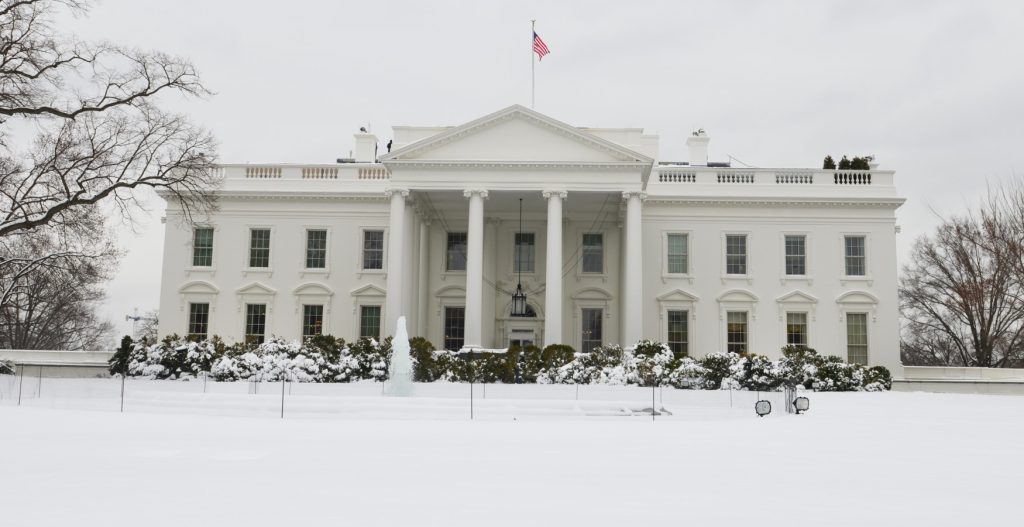Landlords in Virginia can legally evict you during a blizzard, but in Maryland and DC, whether you can be evicted depends upon just how cold it is.

Cold weather evictions in Washington, DC
In the District of Columbia, the U.S. Marshals Service executes writs of restitution issued by DC Superior Court judges. D.C. Code § 42–3505.01 prohibits the Marshals from eviction when the temperature falls below freezing:
. . . No housing provider shall evict a tenant on any day when the National Weather Service predicts at 8:00 a.m. that the temperature at the National Airport weather station will fall below 32 degrees Fahrenheit or 0 degrees centigrade within the next 24 hours.
The Marshals will also not complete evictions if it’s raining or snowing. In those situations, the Marshals will attempt to contact both tenant and landlord to discuss the anticipated delay for the eviction. In most cases, the Marshals will complete the eviction on the next available day that temperature and precipitation permit.
Cold weather evictions in Maryland
In Maryland, landlords must first obtain an eviction order and then a warrant of restitution before evicting a tenant. Only law enforcement officers — and not landlords — may remove a person from the premises. Baltimore City has slightly different rules for evictions.
As in the District, Maryland evictions may be postponed due to cold weather or precipitation. But the tenant must actively assert an inclement weather defense to the deputy sheriff conducting the eviction. A court hearing may be scheduled the same afternoon as the eviction, in which case the judge will likely grant postponement of the eviction if the weather is below 32 degrees or if it is raining or snowing. The eviction will be rescheduled for the next available day that temperature and precipitation permit. Practically speaking, however, rescheduling an eviction in Maryland takes as many as 30 days.
Cold weather evictions in Virginia
Virginia is less lenient than D.C. and Maryland. Virginia law does not specifically prohibit inclement weather evictions. In Virginia, a landlord commences eviction with a Summons for Unlawful Detainer, then obtains a Writ of Possession. In Virginia, these timelines are very short, typically three months from default to eviction.
County sheriff’s offices oversee all evictions in Virginia. If your landlord attempts lock-out or eviction without the supervision of the sheriff’s office, call the police.
Both the Arlington Sheriff’s Office and the Fairfax County Sheriff’s Office “reserve the right” to postpone an eviction to the next available date in cases of inclement weather. But the sheriffs are not required to do so. The sheriff’s offices for Loudoun County, Prince William County, and Alexandria offer no guidance on cold weather policies for evictions.
Can eviction happen in cold weather?
Yes, in Virginia. Your landlord can legally evict you during a blizzard. Sorry.
Landlords in Maryland and the District of Columbia can also evict in cold weather, but it depends on how cold and where you live. If it’s raining or snowing, or if the temperature is below freezing, take steps to postpone the eviction while you explore alternative housing options.
